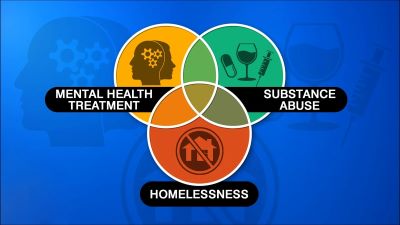Context
The National Family Health Survey (NFHS-5) in India has recently shed light on the pervasive issue of violence against women, with alarming statistics indicating that nearly 30% of women aged 18-49 have experienced physical violence, and 6% have reported sexual violence, starting as early as age 15. The intersectionality of violence, homelessness, and women's mental health presents a complex web of challenges that demand attention and comprehensive solutions. Evidence suggests a reciprocal relationship between violence and mental health conditions, exacerbating the risk of homelessness. Over three decades, The Banyan has worked extensively with homeless women experiencing mental health conditions, unveiling the intricate dynamics between violence, homelessness, and mental health.
The Interplay of Violence and Homelessness
Relational disruptions, often stemming from experiences of violence, have emerged as significant predictors of homelessness among women accessing mental health care. This finding resonates with global studies, emphasizing the profound impact of violence on housing stability. Qualitative research has highlighted the nuanced experiences of trauma among homeless women, underscoring the mismatch between lived experiences and traditional diagnostic frameworks. Interviews with women living with mental health conditions reveal multifaceted journeys into homelessness, often driven by a desire to escape cycles of violence inflicted by family members or intimate partners. The enduring trauma of child sexual abuse and intimate partner violence looms large, shaping individual mental health outcomes and pathways into homelessness.
Narratives of Survival and Resistance
Personal narratives offer poignant insights into the lived experiences of homeless women grappling with mental health challenges. Stories like Leela's, who at age 5, found herself navigating the harsh realities of homelessness alongside her mother, illuminate the indelible scars of violence etched into their lives. Within a matrix of structural barriers such as poverty and caste, violence emerges as a catalyst for rupturing conventional notions of home and community, driving women towards precarious living situations. Ellen Corrin's work challenges reductionist views of schizophrenia, emphasizing the importance of contextualizing mental illness within broader life experiences. Similarly, the narratives of homeless women underscore the inadequacy of biomedical frameworks in capturing the complexities of women's mental health within the context of violence and homelessness.
Madness as Resistance and Liberation
Historically, the label of madness has been weaponized to silence and marginalize women who resist patriarchal norms. Contemporary society continues to confine women within narrow constructs of womanhood, perpetuating cycles of violence and oppression. Some women reclaim madness as a form of resistance, transcending societal expectations and embracing alternative identities. Madness becomes a refuge, offering solace amidst trauma and societal devaluation. Others find empowerment in spiritual narratives or journeys inward, challenging societal constraints and reclaiming agency over their identities. However, mainstream discourse on women's mental health often overlooks these nuanced narratives, focusing instead on biomedical models that fail to address the systemic violence women endure.
Towards Comprehensive Solutions
Addressing the complex interplay of violence, homelessness, and women's mental health requires multifaceted solutions rooted in intersectionality and social justice. Recognizing and compensating women for their unpaid labor, creating supportive networks outside traditional family structures, and ensuring economic independence through access to basic income and housing are critical steps. Educational interventions aimed at challenging harmful gender norms and fostering egalitarian values can help prevent violence against women. Moreover, policies and interventions must prioritize childhood adversity and early interventions to mitigate the long-term impact of trauma on mental health. A holistic approach that embraces diverse perspectives and acknowledges the intersectional nature of women's experiences is essential in addressing the root causes of violence and homelessness.
Conclusion
The nexus of violence, homelessness, and women's mental health underscores the urgent need for comprehensive solutions that go beyond conventional biomedical frameworks. Personal narratives unveil the complexities of women's experiences, highlighting the inadequacy of existing discourse in capturing their lived realities. Embracing intersectionality and social justice principles is paramount in developing robust responses to address the plurality of needs among homeless women. By prioritizing diverse perspectives and adopting a holistic approach, we can pave the way for meaningful change and create a more equitable society for all women.
|
Probable Questions for UPSC Mains Exam 1. Explain the complex relationship between violence, homelessness, and women's mental health, drawing insights from recent studies and personal narratives. How can these understandings inform effective policy interventions to address the intersecting challenges faced by homeless women with mental health conditions? (10 marks, 150 words) 2. Evaluate the influence of societal norms and historical contexts on perceptions of women's mental health, particularly in the context of violence and homelessness. Discuss the potential contributions of a feminist standpoint approach in shaping more inclusive strategies to address mental health disparities among vulnerable populations. (15 marks, 250 words) |
Source – The Hindu







